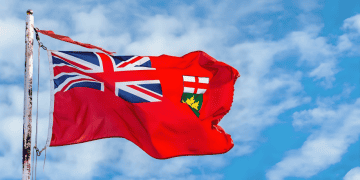Ontario Premier Doug Ford has delineated potential countermeasures in reaction to President-elect Donald Trump’s proposal to implement a 25% tariff on all Canadian imports. Among the recommended actions, Ford has suggested suspending electricity exports to U.S. states such as Michigan, New York, and Minnesota, as well as prohibiting the import of American-made alcoholic beverages into Ontario.
Ontario serves as a substantial energy supplier to the United States, providing power to approximately 1.5 million American households in 2023. Ford underscored that restricting electricity exports could render energy prohibitively expensive for these regions. Furthermore, the Ontario Liquor Control Board, recognized as the world’s largest purchaser of alcohol and the province’s primary retailer, may halt the acquisition of American-made alcoholic products.
In addition to energy and alcohol, Ford’s administration is contemplating further measures, such as limiting exports of critical minerals vital for electric vehicle batteries and excluding U.S. companies from Ontario’s procurement processes. These proposals aim to safeguard Canadian economic interests and highlight the potential ramifications of a trade conflict between the two nations.
The Canadian federal government has also voiced concerns regarding the proposed U.S. tariffs. Finance Minister Chrystia Freeland has indicated that Canada and its provinces would respond decisively should such tariffs be enacted. However, some provincial leaders, including Alberta Premier Danielle Smith, advocate for a diplomatic approach rather than retaliatory measures, emphasizing the necessity of maintaining robust trade relations with the United States.
The proposed tariffs are part of President-elect Trump’s campaign pledge to address issues related to drugs and migration by imposing a 25% tariff on imports from Canada and Mexico. Canadian officials are exploring various responses, including enhancing border security and fostering cooperation with the United States to address these concerns.
The situation remains dynamic, with both Canadian and U.S. officials evaluating the economic ramifications of such trade measures. The interconnected nature of the two economies, particularly in sectors such as energy and automotive manufacturing, suggests that any trade disruptions could yield significant consequences on both sides of the border.
Breaking supply chain news is just a click away at The Supply Chain Report. Enhance your knowledge of international trade at ADAMftd.com with free tools.
#Ontario #DougFord #DonaldTrump #TradeWar #CanadaUSRelations #Tariffs #ElectricityExports #AlcoholImports #EconomicPolicy #USCanadaTrade #EnergySupply #LCBO #CriticalMinerals #TradeConflict #Diplomacy #BorderSecurity #AutomotiveIndustry #ElectricVehicleBatteries #ProcurementPolicy #OntarioGovernment
- Latest
- Trending















